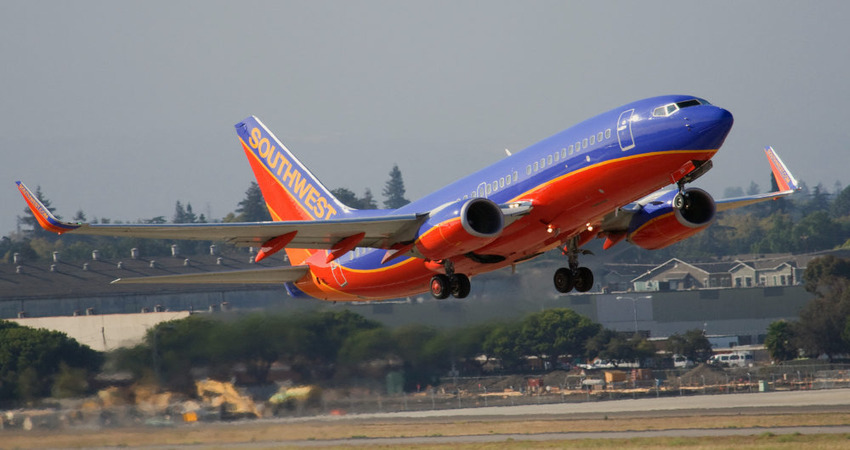Southwest Airlines on Thursday announced a three-year plan to revitalize its operations and customer offerings as it defends against an activist investor that calls for new leadership and a change in strategy.
The plan builds on a series of changes Southwest has made in recent months, including adding premium seats, introducing red-eye flights and replacing its pick-your-seating system with seats starting in 2026. Plans included.
The airline said Thursday it will begin selling vacation packages and partnering with international airlines, starting next year with Icelandair to Baltimore. It also announced a $2.5 billion share repurchase program and plans for operational changes, including speeding up the time it takes to get planes back in the air after landing and other ways to cut costs. Involves searching.
Southwest shares rose nearly 7 percent Thursday afternoon.
Southwest Chief Executive Bob Jordan unveiled the move during a meeting with investors and analysts Thursday morning, calling it the “most transformational plan” in the airline’s history.
“We have built a plan that is built on values and principles that have earned years of financial success and shareholder returns with appreciation, loyalty and love,” he said.
The airline is making the move under increasing pressure from activist hedge fund Elliott Management, which has amassed more than 10 percent of the shares worth about $2 billion. Elliott has said the airline is underperforming and has blamed Mr. Jordan, who has worked at the airline for decades.
The hedge fund claims Southwest can better contain rising costs and improve profit margins. To do that, Elliott says, the airline needs new board members and a new chief executive. The hedge fund plans to call a meeting of shareholders next week to vote on candidates it has proposed for the airline’s board, mostly former industry executives.
Mr Jordan said on Thursday that Elliott had declined to work with the airline, focusing instead on “strategy and gamesmanship”. The airline also said it appointed a new board member, Robert Fornaro, the former chief executive of both Spirit Airlines and AirTran, which Southwest acquired more than a decade ago.
Elliott rejected the plan in a statement, saying he did not believe Mr. Jordan could effectively implement the new strategy.
“Without credible leadership that can execute, this plan — filled with long-standing promises of improved performance — risks becoming the latest in a long series of failed Southwest improvement initiatives,” the firm said. said
Southwest once reported consistently strong profits even as other airlines lost money and sought bankruptcy protection. But its financial results in recent years have disappointed some investors, who point to airlines that have adapted more quickly to changing demand, for example, by selling more premium seats.
Mr. Jordan has acknowledged that the airline needs to make some changes. The airline is in the midst of better internet service, in-seat power outlets and larger overhead bins. This year, the airline also started listing its flights on travel websites like Google Flights and Kayak.
But it’s unclear whether Southwest, which has become one of the world’s biggest airlines by being different, can now do well by doing a little more like other airlines.

“They don’t need to be another legacy airline,” said Savanthi Seth, a financial analyst at Raymond James. “They just need to adapt, and they need to set themselves apart.”
In a note about the plan the company presented Thursday, Ms. Seth said it was promising, but execution would be key. Analysts at investment firm Jefferies also praised Southwest for taking quick action, but said in a note that some of the airline’s estimates were optimistic.
Other carriers have spent the past two decades redesigning their planes, fares and policies. Unlike Southwest, many airlines now charge bag fees and offer limited basic economy fares to bargain hunters and premium seats to more affluent passengers. These changes are widely credited with helping airlines make more money.
Southwest also made changes, such as selling priority boarding, but it ended the industry’s evolution. Southwest has lost a competitive edge in recent years, while other major airlines have reduced change fees for many passengers.
Southwest on Thursday provided more details about the changes announced over the summer, which were informed by surveys, interviews and focus groups with customers over the past year.
The airline said four out of every five customers wanted assigned seats, which it will start selling for flights next year in 2026. It has used open seats for decades, allowing it to load planes faster, but customers have grown frustrated with the experience, Southwest said. Despite the switch to assigned seats, the airline will still ask customers to board by number, which it says will save time.
Southwest also said it would begin offering red-eye flights in February, and add the equivalent of 18 new aircraft capacity over the next year. And the airline defended offering two free checked bags to each passenger, saying a review found changing the policy would do more harm than good.
The company, which flies almost entirely within the United States, has a lot going for it. It still earns consistent if not always spectacular profits. It has very little debt and has the lowest operating costs of any of the four major US airlines. It also receives consistently high ratings from travelers: a recent J.D. According to the Power Report, Southwest ranks highest in customer satisfaction among people flying in economy or basic economy classes.
But critics say Southwest has failed to capitalize on those strengths and adapt to a changing industry. Its stock is dwindling. For most of the past decade, it has delivered the lowest earnings per share of the big four airlines, including American, Delta and United. Its revenue has been growing more slowly than its rivals, and it has struggled in recent years to control costs, which were a clear strength of the business.




